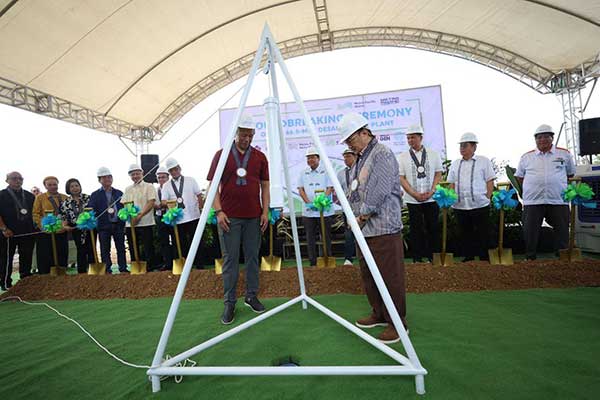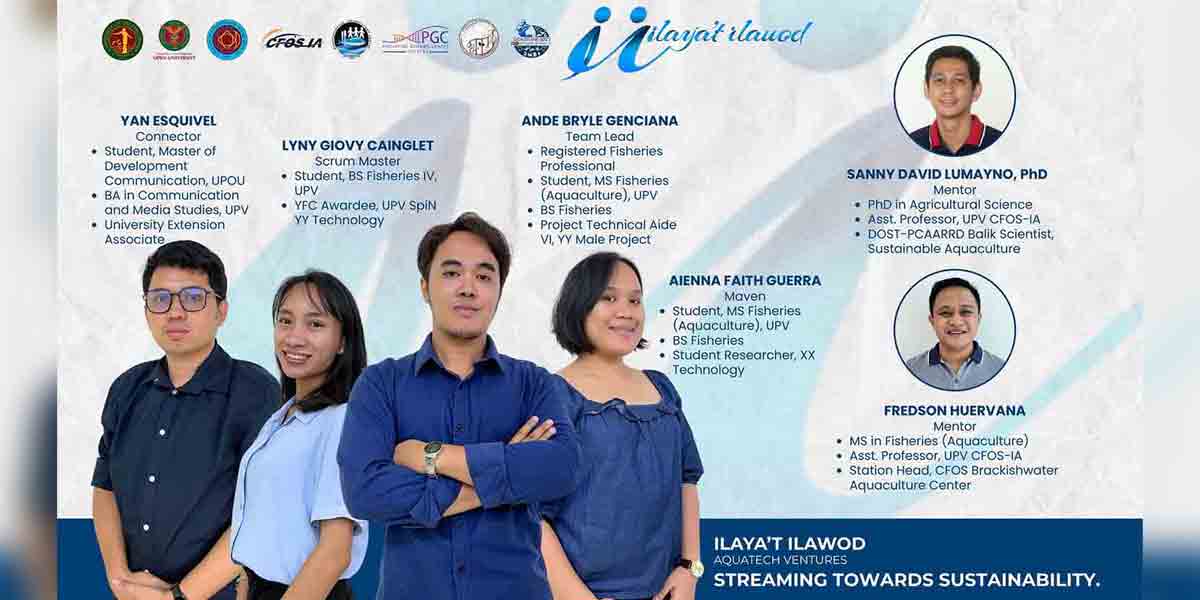
By Mariela Angella Oladive
The construction of the Philippines’ largest desalination plant is now underway, marking a major step toward addressing Iloilo City’s growing water demand and securing a sustainable water supply.
Mayor Jerry P. Treñas, alongside Iloilo Governor Arthur Defensor Jr., Interior Secretary Jonvic Remulla, and Metro Pacific Water (MPW) executives, led the groundbreaking ceremony for the 66.5-million-liter-per-day (MLD) facility on Feb. 21 in Barangay Ingore, La Paz.
The project, spearheaded by MPW, a subsidiary of Metro Pacific Investments Corp (MPIC), will provide a dedicated water source for the city, doubling its current capacity through Metro Pacific Iloilo Water.
“This project is a testament to our commitment to improving the lives of our people, providing not only water but also promoting sustainability and safety for the Ilonggos,” Treñas said
The new supply aims to resolve the long-standing issue of water scarcity, particularly in the City Proper district.
“This project will double the water capacity for the entire city through Metro Pacific Iloilo Water, the largest water distribution utility in Iloilo. For the first time, a dedicated water source will be allocated to the City Proper district, effectively addressing the long-standing issue of water scarcity in the area,” Treñas emphasized.
He emphasized how essential safe drinking water is, pointing out that in 2022, a severe gastroenteritis outbreak affected all areas of the city, including Ingore barangay.
According to the mayor, this project aims to address both Iloilo City’s present water requirements and ensure adequate supply for its continued expansion and development.
“We are here today because of the strong partnership between the City of Iloilo, Metro Pacific Water, and all our partners. This project is a testament to our commitment to improving the lives of our people, providing not only water but also promoting the sustainability and safety of the Ilonggos,” the city mayor addressed the attendees during the groundbreaking ceremony.
The P5.5-billion facility, developed in partnership with French water management firm Suez, will utilize advanced reverse osmosis technology to convert seawater into potable water.
Once operational, it will supply an additional 50,000 households, ensuring a reliable water source even during droughts and reducing dependency on rivers and groundwater.
By providing a consistent and dependable supply, it aims to bolster Iloilo’s position as a thriving economic hub driven by business process outsourcing, tourism, and other industries.
“MPW’s commitment to providing sustainable water solutions is at the heart of this project. It underscores our dedication to supporting Iloilo’s rapid growth and development. This innovative and sustainable desalination facility will provide a long-term solution to the water challenges of Iloilo,” said Andrew Pangilinan.
EXPANDING WATER SOLUTIONS FOR ILOILO
As Iloilo continues to develop as a major economic hub outside Metro Manila, Treñas highlighted MPW’s commitment to exploring additional water sources.
Plans include modular desalination plants to reinforce supply in high-demand areas such as Megaworld’s Iloilo Business Park in Mandurriao.
The city mayor compared Iloilo’s initiative to Dubai’s use of desalination technology, stressing the urgency of further increasing the water supply.
“MPW understands that the current supply is still not enough. They will continue to seek additional sources to meet the growing needs of our residents,” he added.
The project aligns with the United Nations’ Sustainable Development Goals, aiming to ensure all households in Iloilo have access to potable water.
The project combines the expertise of MPW, Suez, and JEMCO. With its five-decade experience in desalination and reputation as a worldwide authority in water and waste management, Suez will provide technical guidance for building and running the plant.
“This facility will establish new standards for water sustainability projects across the Philippines while ensuring Iloilo’s water security through our advanced technology,” said Suez Asia chief Farchad Kaviani.
Beyond serving Iloilo City, MPIW’s comprehensive plan aims to tackle water shortages in surrounding towns like Pavia, Leganes, Sta. Barbara, Cabatuan, Oton, San Miguel, and Maasin. The project is expected to serve as a model for other Philippine regions struggling with water access.
Integrated Waste Management to Power Sustainability
Alongside the desalination plant, Iloilo City is taking another groundbreaking step in environmental stewardship with plans for an advanced waste management facility (ISWMF) that will power the water facility.
The project, a partnership between the city government, MetPower Venture Partners Holdings, Inc., and MPIC, mirrors the progressive environmental approaches seen in other Southeast Asian nations by turning waste into valuable resources.
Rather than using incineration, the facility will employ a more environmentally conscious approach combining three technologies: Mechanical Biological Treatment, Anaerobic Digestion, and Combined Heat and Power.
The process will generate methane-rich biogas to produce 3.5 MW of renewable energy, which will power MPW’s desalination plant. Additionally, the process creates solid digestate that can be used as agricultural fertilizer.
The timing is crucial, as the city’s Calahunan landfill is nearing capacity, making this eco-friendly and cost-effective solution particularly vital for the city’s future waste management needs.
















